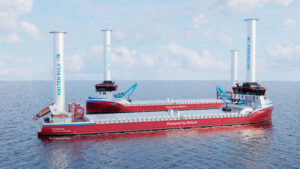New survey on green shipping pilot projects focusing on ship technology, fuel production, bunkering, and infrastructure solutions has seen an 84% increase since last year.
A new report from the Global Maritime Forum has identified 373 zero-emission pilot and demonstration projects, which is an 84% increase over last year’s edition.
New projects have emerged in Thailand, Egypt, Malaysia, and South Africa.
The survey reveals highly collaborative approach to decarbonising shipping. In other words, there is an increased activity among industry to innovate and find collaborative solutions to decarbonise shipping by 2050. Also, findings see a continued increase in projects focusing on hydrogen-based fuels with ammonia and hydrogen in the lead.
The latest Mapping of Zero-Emission Pilots and Demonstration Projects, launched at a Getting to Zero Coalition Workshop in Paris showed the number of projects had risen in comparison with last year´s report.
According to the report, identified pilot projects take a highly collaborative approach, with 70% of the identified projects involving partners from at least two countries. Partnerships are growing between developing and developed countries as well and there is a global spread with some regions having higher industry activity than others. Most projects are based in Europe (56%), Asia (33%), and North America (9%), and the top three countries by the number of projects are Norway, Japan, and Denmark.
Johannah Christensen, CEO of the Global Maritime Forum said “We see tangible actions from the industry that demonstrate their eagerness to decarbonise by 2050. It is promising that the number of zero-emission pilot and demonstration projects is increasing each year and impactful projects are being developed in the Global South. Now we need industry’s actions to be backed by an ambitious revised greenhouse gas emissions strategy from the International Maritime Organization.”
Paul Delouche, Director of Strategy & Advanced Services Bureau Veritas mentioned that “The Zero-Emission Pilots and Demonstration Projects report is an important resource for the shipping and maritime communities. Sharing how projects are developed from the earliest stages helps us to make informed decisions towards our shared 2050 decarbonisation goals.”



